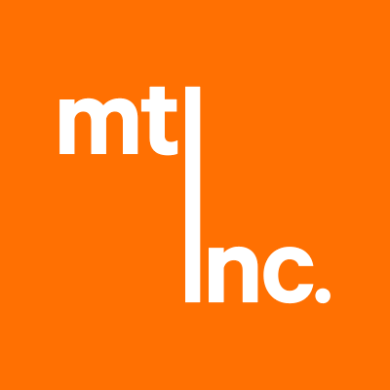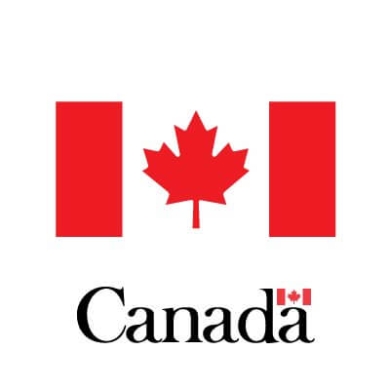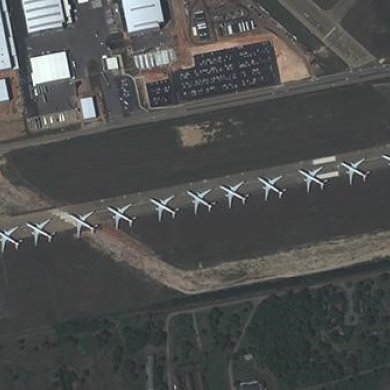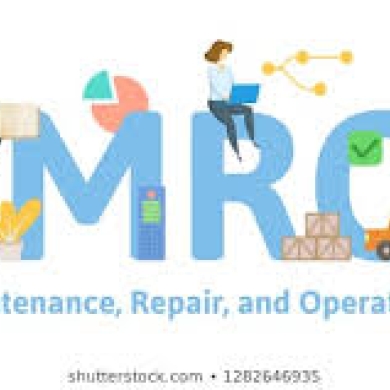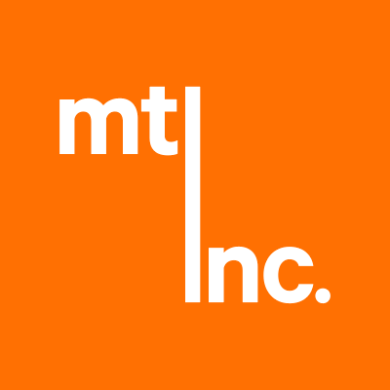17 avril 2020
Guy Norris Jens Flottau Michael Bruno Sean Broderick
April 17, 2020
Aviation Week and Space technology
Just a short time ago, Airbus could not expand fast enough. Given the strength of demand, the manufacturer planned to add another final assembly line for narrowbodies in Toulouse, even though its global industrial system was already complex — because maximum deliveries were what mattered.
Now, as aircraft manufacturers begin to assess the medium- and longer-term impact of the COVID-19 pandemic, the Toulouse project and many others- are on hold or at least substantially slowed down. And if the revised projections for future aircraft deliveries are only roughly accurate, that additional assembly line will not be needed for a very long time. Airbus in early April became the first OEM to announce new production targets, around one-third below previous assumptions.
At this stage, trying to figure out aircraft demand and future production rates is a matter of likelihoods and scenarios covering a wide range of outcomes. In many cases, the most optimistic scenarios already look outdated, leaving those indicating a deeper and more lasting impact on the table — a grim outlook for Airbus, Boeing, Embraer and their suppliers.
Consultancy Roland Berger has attempted to define three possible outcomes. Its “rebound” scenario is modeled around two months of air travel restrictions, a full recovery to a precrisis air travel level by next winter and a compound annual growth rate (CAGR) of 4.6% thereafter. In that case, OEMs would lose only 790 deliveries over 10 years vis-a-vis the precrisis outlook. It is already clear that the short term will be much worse, although a steep recovery in later years remains a possibility.
If restrictions stay in place for four months, the new normal would be at 90% of precrisis levels and would be reached in the summer of 2021. Airlines would defer aircraft replacement for 18 months and future growth rates average 4.1%. Under this “delayed cure” scenario, the industry would lose almost 6,000 deliveries between now and 2030.
Unfortunately, the worst Roland Berger scenario may now be the most likely, at least in its short-term elements: Six months of severe travel restrictions, demand recovery to only 80% by the summer of 2022, extended deferrals and lower growth for the long term at 3.6%. In that circumstance, airlines would accept 10,460 fewer aircraft over the next 10 years. For context: Airbus delivered 863 aircraft in 2019, and Boeing sent out 380 (affected by the 737 MAX grounding). In 2019, Boeing led with 806 deliveries, and Airbus handed over 800 aircraft.
If the worst-case scenario comes to pass, the industry will deliver only 11,280 aircraft in the next 10 years; the more positive assumptions of the “delayed cure” model leave that number at 15,840. This would essentially put the industry—on average and very roughly—at the 2017 delivery levels of a combined 1,600 commercial jets above 100 seats for Airbus (now including the A220), Boeing and Embraer. Of course, new players such as Mitsubishi's SpaceJet, the Comac C919 and the United Aircraft Corp. MC-21 will fill (small) amounts of the demand as well.
Airbus' decision to cut production by one-third would, if continued, leave it with around 570 annual deliveries, close to 2011 levels. CEO Guillaume Faury points out that it is “not unlikely” that the new rates could go back up in 2021 as the situation improves, but he says it is too early to make firm commitments. The decisions made now reflect the “best knowledge” today and “many conversations with airline CEOs and [chief operating officers].”
The production reduction will be implemented over the coming weeks. “This crisis will probably be a long one,” says Faury. “Our industry is one of the most impacted. . . . [The production rates are] the result of the best matching between the downturn and the remaining commitments. We needed to have a plan. We will review it probably on a monthly basis.”
The manufacturer plans to produce 40 A320neo-family aircraft per month on average, down from a previous near-term target of 63 and a planned increase to 67 or more. Airbus will also reduce A330/A330neo output to two aircraft per month from the precrisis production level of 3.5. A350 deliveries are being reduced from 9-10 aircraft per month to just six.
Airbus delivered 122 aircraft in the first quarter, 36 of them in March. That month included two A220s, 19 A320neos, one A321ceo, 10 A321neos, one A330-200 and three A350s, according to the company's latest order and delivery figures. Airbus produced 60 more aircraft that were not delivered in the quarter because customers said they were unable to accept them.
The A330 will remain a profitable program, says Faury, but the A350 will face “more headwinds,” having just moved into profitability in 2019.
Boeing's recently updated commercial airliner figures for 2020 through March reveal dramatic cuts in orders and deliveries as the air transport market continues to nosedive in the midst of the COVID-19 pandemic.
The beleaguered company, which is due to release its first-quarter financial results on April 29, saw net orders for the year plummet by 307 aircraft, putting it on track for its worst period since the mid-1990s. Despite picking up 24 new orders for the 787 and two additional 767 orders, the bulk of the damage was caused by losses to the 737 MAX orderbook.
According to many financial analysts, Airbus' rate cuts set a floor for similar action by Boeing.
“We believe similar cuts from Boeing are likely,” Ken Herbert of Canaccord Genuity said April 14. His team assumes MAX deliveries will not restart until at least the third quarter, with just 36 to be delivered this year. It will take “several quarters” for MAX new order activity to pick up. Production next year could average 21 new narrowbodies monthly, and perhaps around 40 per month by the end of 2022. But some of that depends on how much government aid and commercial-sector funding Boeing ultimately receives.
“We believe the updated production forecasts are alarming, but not surprising,” Herbert added.
“The coronavirus is likely to become a significantly greater pressure point on Boeing than the long-running 737 MAX crisis,” says Jonathan Root, Moody's Investors Service senior vice president and lead analyst. “We now estimate external funding needs in 2020 to at least double—to $30 billion—compared to our precoronavirus expectations,” he says. Boeing already funded about half of this need with the $13.8 billion delayed-draw term loan facility arranged in February and drawn down by mid-March.
In the long term, Root's team does not envisage a return to 2019 delivery numbers before the end of 2022. Many other analysts such as Herbert and consultants such as Roland Berger's group agree.
Grounded since March 2019 following two accidents, the 737 MAX lost a further 150 orders in March 2020, half of which were cancellations from aircraft lessor Avolon. Other operators included Brazilian carrier Gol, which cut 34 aircraft from the backlog as part of a compensation deal for nondelivery of 25 MAXs in 2019. Overall, net 737 orders for the first quarter have been reduced by 314 aircraft, some 173 of which are listed as cancellations or conversions to other models, and another 141 lost because they no longer meet Boeing's firm contract revenue accounting standard.
Deliveries were also significantly down. Just 50 aircraft of all models were delivered through March 31, representing the lowest number of quarterly deliveries since the end of 2008. By comparison, Boeing delivered 149 aircraft in the same period in 2019, and 184 were handed over to customers in the first quarter of 2018. The falloff in deliveries primarily reflects the continuing impact of the 737 MAX grounding, which last year more than halved the company's overall delivery target. Boeing says delivery numbers have been also affected by logistical challenges, as some operators have been unable to bring flight crews to the U.S. to accept the new aircraft owing to travel restrictions.
The restrictions are also hampering the MAX's return-to-service effort. The final FAA certification flight to put the software through its paces, the next major step in the return-to-service process, has not taken place. The subsequent milestone, work by the Joint Operational Evaluation Board (JOEB), a multiregulatory group that will evaluate the MAX training recommendations in simulator sessions, has not been scheduled and is not likely to happen until international travel restrictions are eased. The MAX will not be approved for service until the JOEB's work, including a written report, is done. Boeing has not wavered from its projection that a mid-2020 FAA approval is in the cards, but the lack of progress on key milestones makes this increasingly unlikely.
In 2019, Boeing completed the year with 380 deliveries, 127 of which were 737s and 158 787s. The previous year, with production of the MAX ramping up and manufacture of the final 737NGs still being phased out, the single-aisle models accounted for 580 of the record-breaking 806 deliveries the company racked up for the year.
Military deliveries accounted for eight of the 50 (five KC-46A/767-derivative tankers and three P-8A maritime patrol 737NG derivatives), while the 787 contributed to the bulk of the tally with 29 aircraft.
Boeing has meanwhile announced it will begin a phased return to production of commercial aircraft models—including the 737MAX—at its Puget Sound, Washington, and South Carolina plants starting as early as April 20 after suspending activity on March 25 due to the COVID-19 outbreak. It is, however, widely expected to announce rate reductions for the 737, 777 and 787 shortly after manufacturing resumes. The adjusted numbers, using Boeing's own accounting standards on firm contracts, now show the overall firm backlog for all models has been reduced to 5,049—4,079 of those are for the 737. The 747-8F backlog is now reduced to 13, while the 777 orderbook has shrunk to 356 and the 787 to 515.
Business aviation fares no better than civil, with an expectation that the business jet market will see deteriorating demand. “Though we expect demand for smaller and midsize jets will see a greater decline in demand than larger jets, there will still be a negative impact to the large-cabin segment that includes Bombardier's Global family,” Moody's analysts say.
In turn, credit rating agencies such as Moody's, S&P Global Ratings and Fitch Ratings are downgrading debt rankings of OEMs and suppliers across the board. “The downgrades reflect Moody's expectation that 2020 will be a very challenging year for commercial aerospace suppliers, with double--digit earnings declines stemming from a significant reduction in commercial aerospace production by Tier 1 OEMs and suppliers,” the Moody's analysts say. “Stress on the supply chain will result in unprecedented deterioration in earnings and cash flows, resulting in key credit metrics that will remain strained for some time.”
“Many suppliers are distressed,” Spirit AeroSystems said in a regulatory filing.
